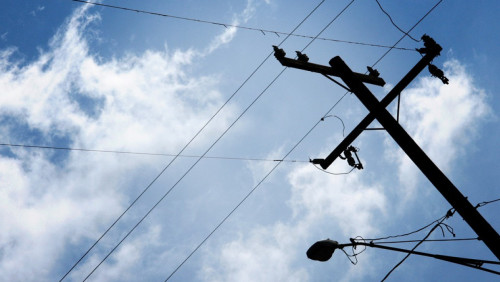English
Will Norway Enjoy Cheaper Electricity? All Due to... Falling Prices in Germany

The forecast indicates that the average price should drop by one third. Pixabay/ Creative Commons CC0
A new Norwegian forecast shows that the energy market in Germany is entering a phase of rapid normalization. This effect may also lower prices in Norway, all due to the connection between the Nordic energy market and continental Europe.
Tor Reier Lilleholt from Volue Insight estimates that in 2026, prices in the NO2 region (southwestern Norway, where international cables converge) could fall by nearly 40 percent. His analysis shows that the average amount in NO2 will be around 62 øre including VAT, and in the east and west of the country, it will be one øre lower.
According to the forecast, price differences between Norwegian zones are expected to gradually disappear and "largely" vanish by 2030. The analyst added that even in the UK, models indicate a downward trend. The forecast was presented on October 17 in Fornebu.
According to the forecast, price differences between Norwegian zones are expected to gradually disappear and "largely" vanish by 2030. The analyst added that even in the UK, models indicate a downward trend. The forecast was presented on October 17 in Fornebu.
Germany with the Greatest Impact on the European Market?
Lilleholt sees the cause of the changes in Germany's situation. After a period of high prices, driven among other things by reduced gas supplies from Russia and rising CO₂ permit costs, the market is expected to stabilize. Gas prices—adjusted for inflation—are returning to pre-pandemic levels, and in 2026 are expected to be lower than the market currently estimates.
At the same time, large coal capacities are being phased out, with a significant portion already in 2026, which reduces the importance of CO₂ costs. As a result, a greater share of demand is to be covered by cheaper production, especially from rapidly growing renewables in Germany.
At the same time, large coal capacities are being phased out, with a significant portion already in 2026, which reduces the importance of CO₂ costs. As a result, a greater share of demand is to be covered by cheaper production, especially from rapidly growing renewables in Germany.
This Is the Pace of Electricity Price Decline
The analyst points out that with the growing share of renewables and lower gas prices, there will be fewer hours when the most expensive generating unit sets the energy price. As he explained to Nettavisen, this will set a "ceiling" for prices in Scandinavia, determined by the situation in Germany.
The current level of about 90 euros/MWh in Germany is expected to be a transitional stage before dropping to around 60 euros/MWh as early as next year. According to the analyst, this explains why the prospect of price drops also applies to other markets, including the UK.
The current level of about 90 euros/MWh in Germany is expected to be a transitional stage before dropping to around 60 euros/MWh as early as next year. According to the analyst, this explains why the prospect of price drops also applies to other markets, including the UK.
Dodaj komentarz
Wyślij

